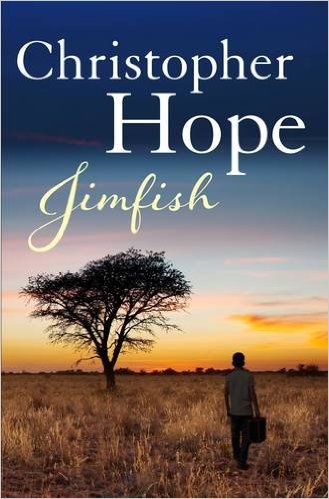Holidays! I am on holidays. Holiday reading (HR) is one of the best parts of holidays. HR makes me realise how narrow my day to day reading has become – relentless attempts to understand tetrapartite synapses or what microglia might do during a thought can lead to somewhat limited reading.

HR makes me aware how much of our tiny rehabilitation world is a part of the bigger world. I have just read Christopher Hope’s fresh new novel Jimfish (Atlantic Books, 2015). The Voltaire quote at the start dragged me in… “Men will always be mad, and those who think they can cure them are the maddest of all.” “That’s definitely me” I thought as I got happily sucked into a fantastical story and a reminder of the madness of last century – from South Africa, to the deadly fifth commando regiment of Zimbabwe, Uganda, and onto Chernobyl, the fall of the Berlin Wall, the demise of the Ceauşescus and back to Zaire with the great leopard Mobuto, even Sierra Leone and Liberia for the murder of Samuel Doe and somehow back to South Africa where Mandela’s rainbow nation doesn’t seem to fit with where we have been.
Over all, it’s a rather sad indictment on our species.
Jimfish for me was all about the conflict between irrationality and reason, and the disaster of dualistic thinking. The more I think about it, the world of “Jimfish” is reflected in day to day treatment of chronic pain and stress. I am not sure whether this makes it easier or harder.
All suggestions for holiday reading gratefully received.
-David Butler
PS. In the tradition of the What are you reading (and what are you drinking with it) posts, Jimfish was read with a sturdy Shiraz Grenache blend from Minervois in Languedoc, France.


“Men will always be mad, and those who think they can cure them are the maddest of all.”
I know exactly what he’s saying. Without power, we’re powerless to help others.
A few things can be achieved with intellect alone. For example, reframing a client’s minor or isolated beliefs related to pain. But chronic pain – that’s different. Chronic pain seems to require power as well as intellect. Power comes through treating oneself, and I use meditation for that purpose. I see the whole process of professional development as one of treating myself primarily.
My focus has switched from ‘helping the client’ to ‘making myself as strong as possible’. Being a ‘compassionate helper’ is quite a useless frame to try to work from.
Currently reading: Tracks Nov issue.
I had the same thought for my holidays but still ended up reading Sapiens and a book on stoicism.
This is all really getting out of hand!.
Since retiring in June, my holidays are much more extended. What a joy. I saw a review of this book in the online site Brain Pickings (http://www.brainpickings.org/2015/09/02/rising-strong-brene-brown/) . I had also seen Breme Brown’s Ted talks. If you have not seen them, I highly suggest that you take a look. They are also very appropriate for patients. The title of the book is Rising Strong. Not only is this a valuable book for helping someone find them through those life episodes that, when we are in the middle of them, we wish were happening to someone else, it is well written, witty, and full of stories that allow us to engage her and her theme. Even more important, however, is the concept that story telling has to be an essential component of rising after a fall. One of the key elements that she stresses is not just how to start and end the story, but how to deal with the tough middle or second part of the story where all of the real work is contained. I am more convinced than ever, now that I can sit back and look out over the terrain of PT, that our educational programs do not spend enough time on the development and art/science of story telling. From this book you can gain the perspective of how important and powerful therapeutic tool a well developed story is. TGD